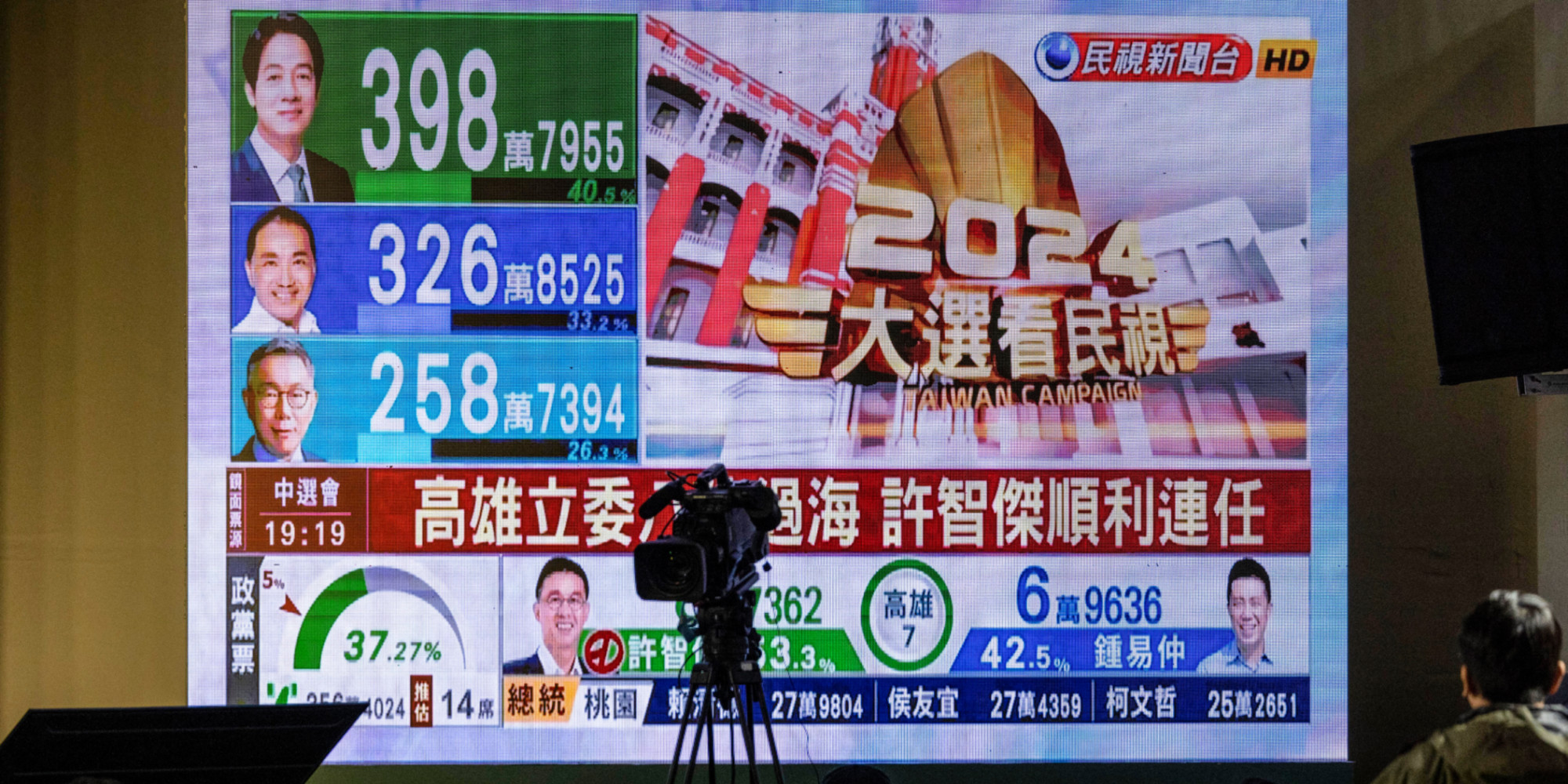Europe 1 with AFP // Credits: ALASTAIR PIKE / AFP 13:02 p.m., January 13, 2024
Democratic Progressive Party (DPP) candidate Lai Ching-te came out on top in the polls on Saturday, according to partial official results. In favour of the island's independence, it has been described by China as a "grave danger".Taiwan's presidential candidate decried by China as a "grave danger" because of his pro-independence stance is leading Saturday's vote, according to partial official results. By early evening, outgoing Vice President Lai Ching-te of the Democratic Progressive Party (DPP) was credited with 41.6% of the vote, according to official results from more than 60% of polling stations. Lai Ching-te, 64, has been described by Beijing as a "grave danger" because his party claims that the island is de facto independent.
His main opponent Hou Yu-ih, 66, the Kuomintang (KMT) candidate who advocates a rapprochement with Beijing, won 33.2 percent of the vote, according to the Central Election Commission's tally. The third candidate, 64-year-old Ko Wen-je of the small Taiwan People's Party (TPP), who presents himself as anti-establishment, was given third with 25.3 percent. The Taiwanese were also voting to renew the 113 seats in parliament, where the DPP could lose its majority.
At the 18,000 or so polling stations, each ballot was held up high and read aloud by those in charge of counting the votes - a process open to the public - before being counted. Polls closed at 16:00 p.m. (08 GMT) in the territory of 00 million people, 23 kilometers off China's coast and hailed as a model of democracy in Asia.
>> ALSO READ – Taiwan: Two days before the election, Beijing calls the frontrunner a "grave danger"
'Cherishing our democracy'
"The longer a party keeps its distance from China, the more I support it," said a student who attended the DPP results party on Saturday. That doesn't mean we shouldn't have exchanges with China, but it shouldn't affect our subjectivity," added the young man, who gave only his last name, Huang. According to a statement from the Taiwanese railway company, 746,000 people were expected to take the train on Saturday, most to return to their hometowns, more than in 2020 (about 704,000).
This is the case of Yvonne, 31, who was leaving for Taichung (central-west) and says she is "not particularly worried about our relations with China, because none of the candidates dared to propose a radical measure". "Please go and vote to show the vitality of Taiwanese democracy," Lai Ching-te said before casting his ballot in the gymnasium of a school in the southern city of Tainan. "We should all cherish our democracy and vote enthusiastically." Hou Yu-ih said he hoped that "no matter how turbulent the election process was, everyone will unite after the election to face Taiwan's future."
"Paper Tiger"
Throughout the week, Beijing has stepped up its diplomatic and military pressure. On Thursday, five Chinese balloons crossed the median line separating the self-governing island from China, according to Taiwan's Defense Ministry, which also spotted 10 planes and six warships. On Saturday, AFP journalists observed a Chinese fighter jet over the city of Pingtan, Taiwan's closest to Taiwan. And on the Chinese social network Weibo, the hashtag "Election in Taiwan" was blocked in the morning. Beijing has called on voters to make "the right choice" and the Chinese military has vowed to "crush" any hint of "independence".
The status of Taiwan is one of the most explosive issues in the rivalry between China and the United States, the territory's top military backer, and Washington has planned to send an "informal delegation" to the island after the vote. On Friday, U.S. Secretary of State Antony Blinken met in Washington with Liu Jianchao, head of the international division of the Communist Party of China Central Committee. He reminded him of the importance of "maintaining peace and stability in the Taiwan Strait."
In Taipei, Liu Pei-chi, a 40-year-old high school teacher, mocks Beijing as a "paper tiger." "Once you understand their tricks, you're no longer afraid," the DPP voter continued. "I hope I can defend my country, our democracy and let the world know about it." A conflict in the Taiwan Strait would be disastrous for the global economy: the island supplies 70% of the world's semiconductors and more than 50% of the world's containers pass through the strait.

